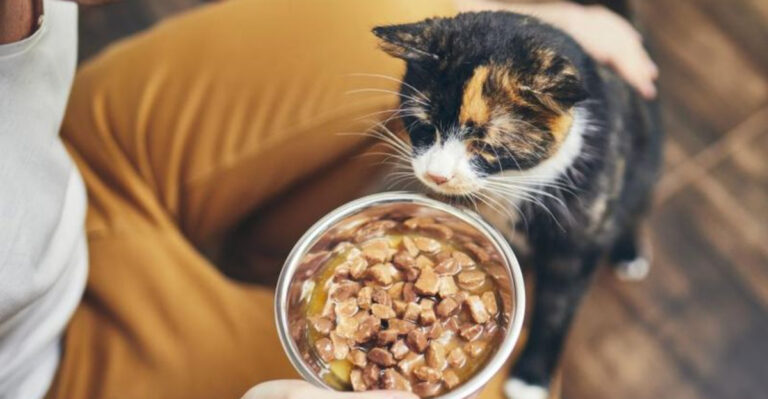10 Common Items That Are Poisonous To Dogs (And 5 Safe Household Items For Your Pup)

Keeping our furry friends safe means knowing what everyday items could harm them. Your home might contain surprising dangers lurking in plain sight that could make your dog seriously ill.
Learning which common household items are toxic to dogs – and which are perfectly safe – could literally save your pup’s life.
1. Chocolate

That delicious chocolate bar contains theobromine and caffeine, which dogs can’t metabolize like humans can. Dark and baking chocolates are the worst offenders, containing higher concentrations of these toxic compounds.
Even small amounts can cause vomiting, diarrhea, excessive thirst, and in severe cases, seizures or heart failure. Always keep chocolate locked away from curious snouts!
2. Grapes And Raisins
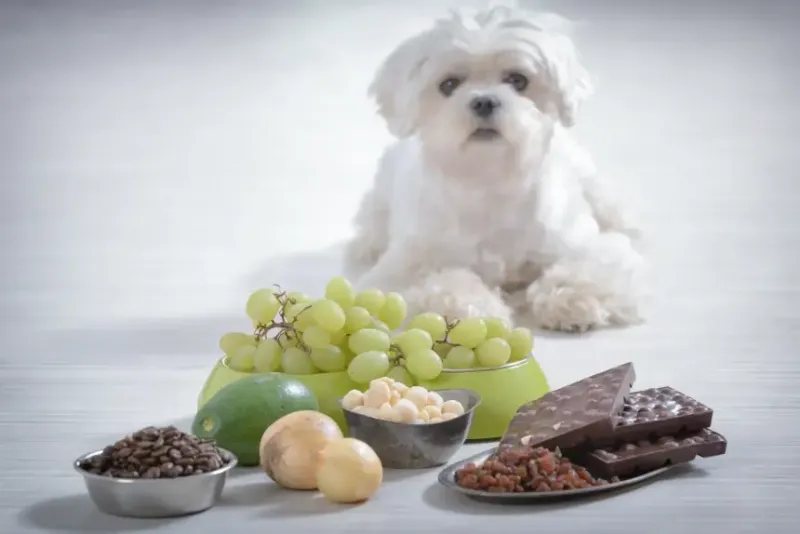
Scientists haven’t pinpointed exactly why, but grapes and raisins can trigger kidney failure in dogs. What’s scarier is that even small amounts might be fatal for some pups, while others might seem unaffected.
Symptoms include vomiting, lethargy, and decreased urination. Keep fruit bowls out of reach and check ingredient lists on baked goods!
3. Xylitol

Found in sugar-free gum, candies, peanut butter, and even some baked goods, xylitol causes a dangerous insulin release in dogs. Your pup’s blood sugar can drop to life-threatening levels within minutes.
Always check labels, especially on “sugar-free” products. Symptoms include vomiting, loss of coordination, seizures, and liver failure that can happen frighteningly fast.
4. Onions And Garlic
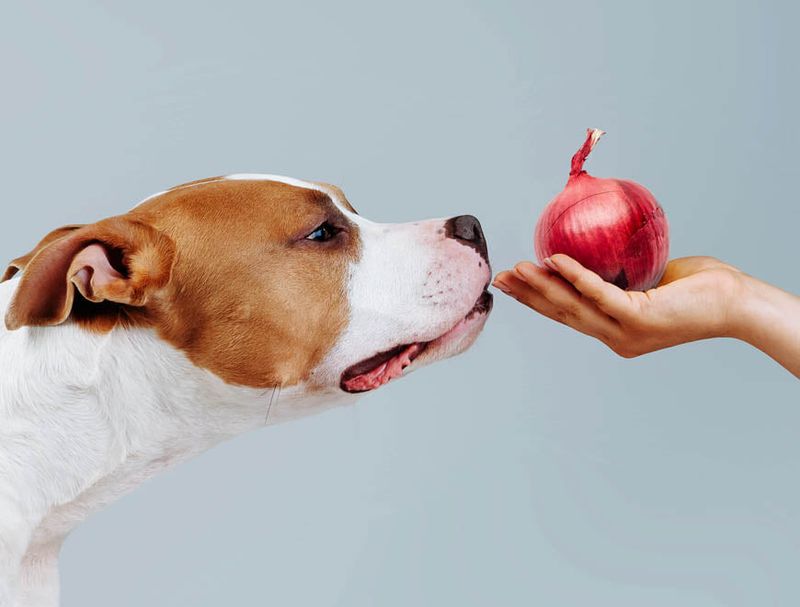
All members of the allium family (onions, garlic, chives, leeks) contain compounds that damage dog red blood cells. Cooking doesn’t eliminate the danger – even garlic powder can be harmful.
Symptoms might not appear for days but include weakness, vomiting, and breathing problems. Check ingredient lists carefully on pre-made foods before sharing with your four-legged friend.
5. Alcohol

Even small amounts of alcoholic beverages can cause serious problems for dogs. Their bodies process alcohol much differently than ours, leading to dangerous drops in blood sugar, body temperature, and blood pressure.
Beer, wine, liquor – they’re all bad news. Be especially careful during parties when drinks might be left unattended at dog-level heights.
6. Coffee And Caffeine

Your morning cup contains methylxanthines that can cause serious health issues for dogs. Coffee grounds, beans, tea bags, energy drinks, and even some medications pack this dangerous punch for pups.
Symptoms include restlessness, rapid breathing, heart palpitations, and muscle tremors. Keep coffee pods, grounds, and beans stored securely away from curious noses.
7. Human Medications

Medicine cabinets contain numerous threats to dogs. Pain relievers like ibuprofen and acetaminophen can cause stomach ulcers, kidney damage, and liver failure in our furry friends.
Antidepressants, blood pressure meds, and cold medicines are equally dangerous. Store all medications in secure cabinets, and never give human medicine to your dog without veterinary approval.
8. Certain Nuts
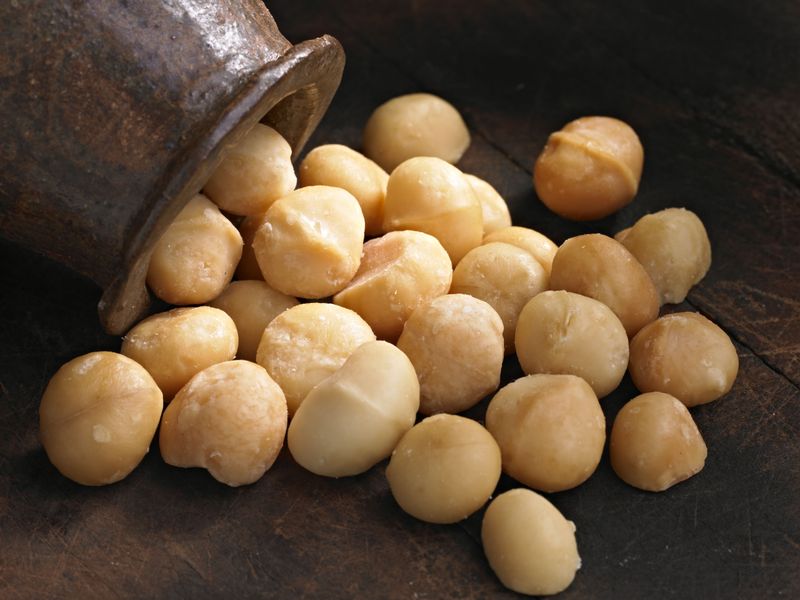
Macadamia nuts can cause weakness, overheating, vomiting, and dangerous tremors in dogs within 12 hours of consumption. While not all nuts are toxic, many are high in fats that can trigger pancreatitis.
Walnuts and pecans may contain tremorgenic mycotoxins if moldy. Keep trail mix, cookies, and nut butters out of reach of those eager paws.
9. Avocados
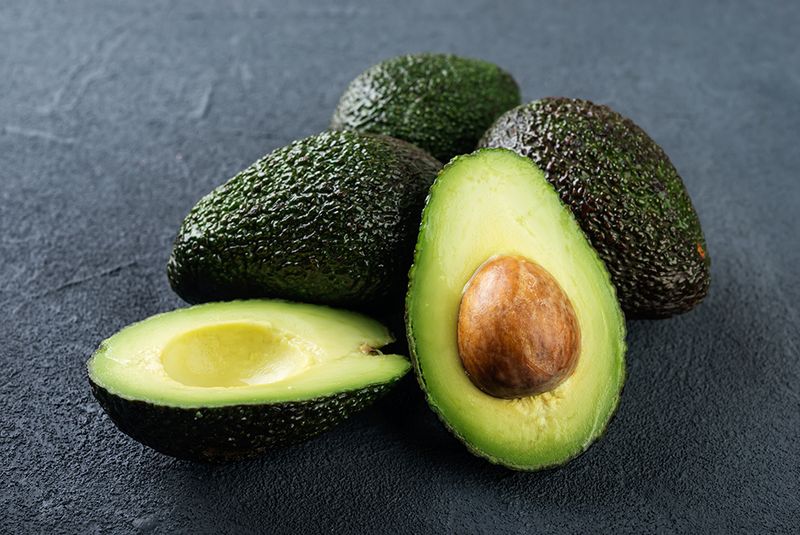
Avocados contain persin, a fungicidal toxin that can cause upset stomachs in dogs. The biggest danger, however, is the large pit that poses a serious choking hazard and can cause intestinal blockages if swallowed.
The high fat content in avocado flesh might also trigger pancreatitis in sensitive pups. Keep guacamole and avocado toast to yourself!
10. Household Cleaners

Bleach, ammonia, drain cleaners, and oven sprays can cause chemical burns to paws and mouths. Dogs might lick recently cleaned floors or counters, ingesting dangerous residues.
Store cleaning products on high shelves or in locked cabinets. Consider switching to pet-safe alternatives, and always keep dogs away from freshly cleaned areas until completely dry.
11. Dog-Safe Alternative: Peanut Butter

Most dogs go crazy for a spoonful of peanut butter! This protein-packed treat makes a perfect Kong stuffing or pill disguise – just ensure it doesn’t contain xylitol.
Check the label for artificial sweeteners before purchasing. Natural, unsalted versions are healthiest, providing healthy fats and protein that can make training time extra rewarding for your eager pup.
12. Dog-Safe Alternative: Plain Cooked Chicken
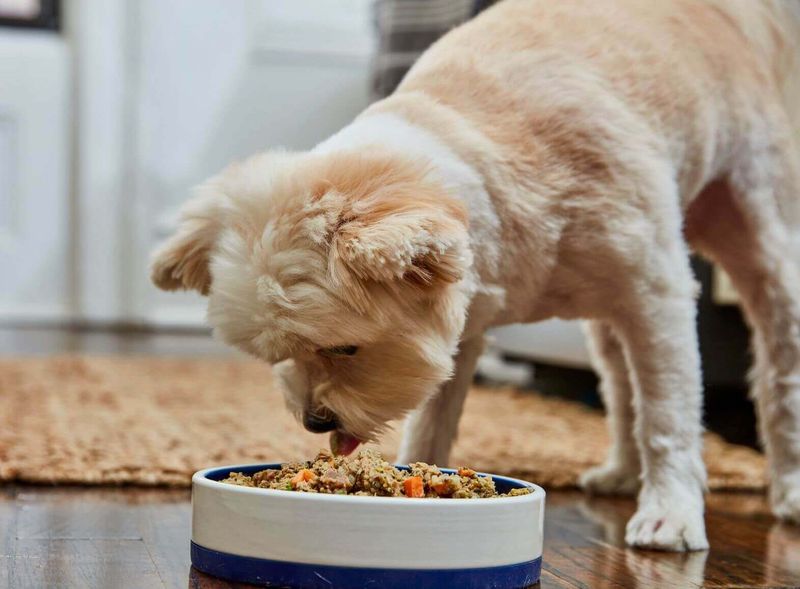
Boneless, skinless chicken breast is practically doggy heaven in food form. This lean protein source can settle upset tummies and entice picky eaters.
Boil or bake it plain without seasoning – salt, garlic, and onion powders are no-nos. Shred it as a meal topper or high-value training treat that’s both healthy and irresistible to those wagging tails.
13. Dog-Safe Alternative: Carrots

Crunchy carrots make excellent low-calorie snacks for dogs watching their waistlines. Their natural sweetness appeals to many pups, while the crunch helps clean teeth and gums.
Raw or frozen carrots can soothe teething puppies. Try cutting them into bite-sized pieces or sticks appropriate for your dog’s size to prevent choking and provide a nutritious vitamin A boost.
14. Dog-Safe Alternative: Plain Yogurt
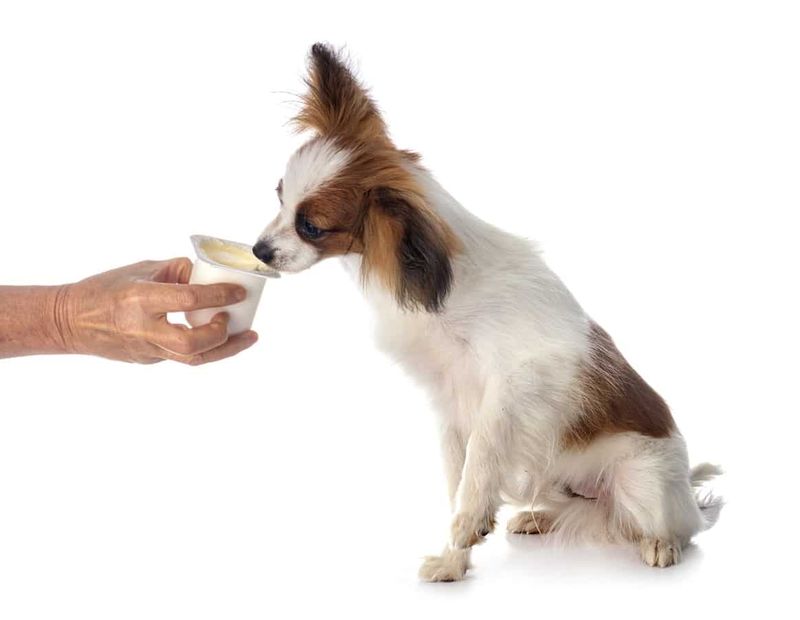
Unflavored yogurt with active cultures can be a probiotic powerhouse for your pup’s digestive system. The creamy texture makes it an irresistible treat for most dogs.
Stick to plain varieties without added sugars, artificial sweeteners, or flavorings. A spoonful frozen in summer provides cooling relief, while a dollop on kibble can entice finicky eaters to clean their bowls.
15. Dog-Safe Alternative: Coconut Oil
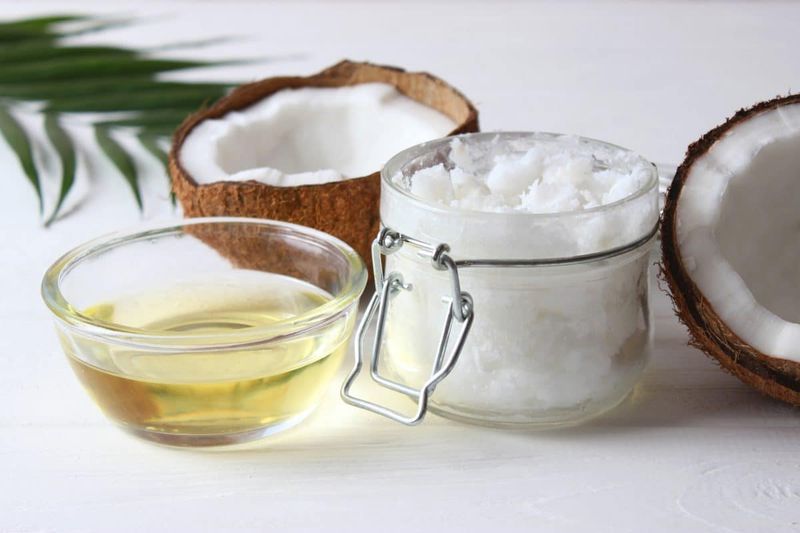
A small spoonful of coconut oil can work wonders for your dog’s coat, skin, and overall health. Many pups love the taste, making medicine time or pill-giving much easier.
Start with tiny amounts to prevent digestive upset. You can also apply it topically to dry paws or noses. This versatile oil helps with everything from bad breath to supporting immune function.




